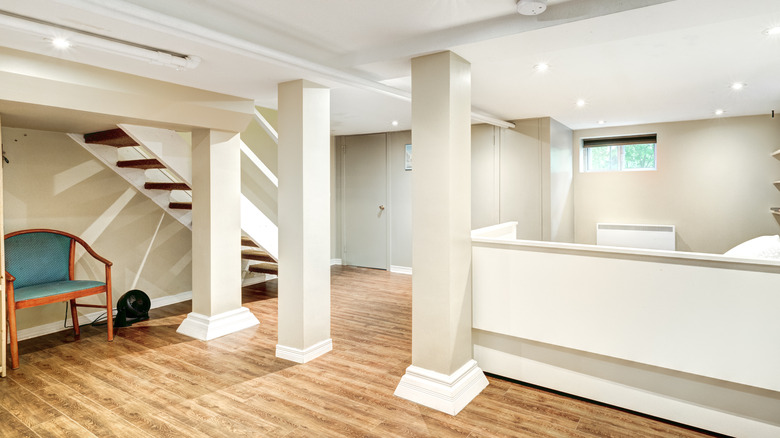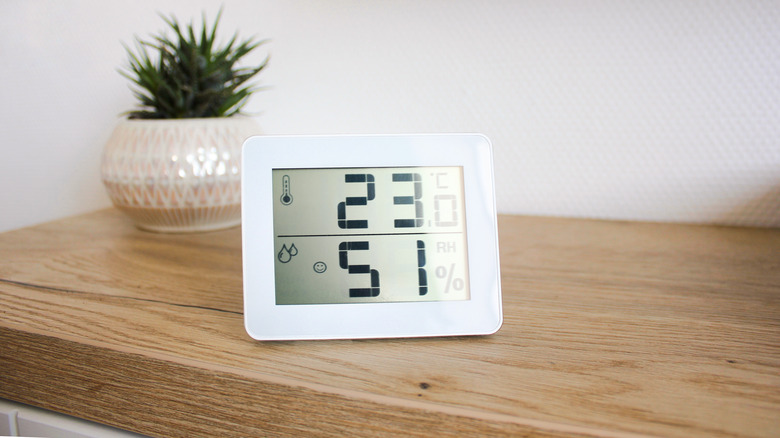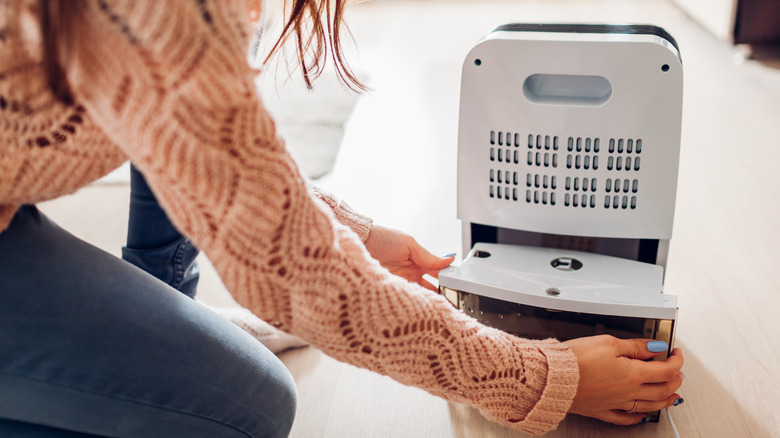Here Is The Ideal Humidity For Your Finished Basement
We may receive a commission on purchases made from links.
Having a finished basement is a wonderful convenience, but due to it being underground, it's susceptible to higher levels of moisture than other areas in your home. An overly humid basement will start to feel muggy and damp and will likely smell a bit off after a while. Ideally, your basement should average humidity levels around 30% to 50%, though you'll likely want to keep the percentage somewhere in the middle of that range. Your basement's humidity will likely fluctuate throughout the seasons, so monitoring it closely is always a practical choice.
Basements tend to have higher humidity levels than above-ground spaces for a few reasons. For one, they tend to have lower-quality insulation than the rest of your home, and since they're underground, outside moisture is more likely to affect the basement than any other room. Pipes also run underground, so if a pipe were to leak or burst, it would naturally impact humidity levels.
Measuring humidity levels
Humid basements are uncomfortable and sometimes have a musty smell if left untreated, but more worrisome issues are associated with them as well. Too much moisture trapped in your basement could lead to the growth of mold and mildew, especially if you have carpets, wallpaper, or vulnerable textiles. Side effects of mold exposure include respiratory issues, headaches and migraines, fatigue, cold symptoms, and more, and are even more dangerous for those with allergies or asthma.
High humidity levels could also speak to more significant concerns in the overall construction of your basement like the earlier mentioned leaky pipes, poor insulation, and other issues. Thus, if your home experiences heavy rainfall or flooding, your basement might require costly repairs due to water damage.
Luckily, it's pretty easy to check the humidity levels in your basement. The easiest and most reliable method is to use a hygrometer. You can buy them in packs like this one from ThermoPro on Amazon; placing them throughout larger basements affords homeowners a more accurate reading.
Adjusting humidity levels
If your basement is too humid, it's vital that you figure out ways to solve the problem before it causes serious damage. One simple option is to purchase a dehumidifier, but that will only work as expected if the causes of your basement's humidity problems have been addressed. Remember, larger basements will require heavy-duty models, while smaller ones will benefit from compact, budget-friendly units.
One reason your basement may be excessively humid is that gaps in doors or windows allow moist air inside your home. Filling those should help, especially in the summer when the weather outside is muggy. Also, if you have windows in your basement, consider opening them from time to time to prevent stagnant, moist air from just sitting, but not so much that you let in tons of hot, humid air. On the other hand, if your basement is too dry, add a humidifier to bring some of that moisture back into the air.


